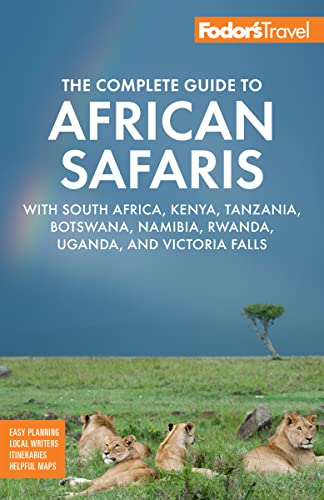Health and Safety
Kenya is a relatively poor country, and crime is a reality for residents and tourists alike; follow these basic precautions for a safe trip.
Mugging, purse snatching, and pickpocketing are rife in big towns. Leave good jewelry and watches at home, and unless you're on safari, keep cameras, camcorders, and binoculars out of sight. Always lock valuables in the hotel or lodge safe. If you must carry valuables, use a money belt under your clothes; keep some cash handy so you don't reveal your money belt in public. Bring copies of all your important documents and stash them away from the originals. Carry extra passport photos in case you need new documents fast. Don't venture out on foot at night. Never take food or drinks from strangers—it could be drugged.
Be on the lookout for street scams like hard-luck stories or appeals to finance a scholarship. Don't be fooled if a taxi driver says on arrival that the fee you negotiated was per person or that he doesn't have change for large bills (bring small bills to avoid this). Be polite but firm if you’re stopped by police officers charging you with an "instant fine" for a minor infraction. If you ask to go to the police station, the charges are often dismissed.
You'll need full medical travel insurance, and if you're planning to dive, trek, or climb, make sure your insurance covers active pursuits. Check with your health-care provider to see what vaccinations might be necessary for your destination(s). Very important: Kenya is a yellow-fever zone, and you will need to produce your yellow fever vaccination card when you leave Kenya. Always use sunscreen and bug repellent with DEET. HIV/AIDS is rampant, and malaria is an issue in certain areas (not in Nairobi but definitely on the coast and game reserves).
The Flying Doctors Service offered by AMREF provides air evacuation services for medical emergencies in Kenya, Tanzania, and Uganda, or anywhere within a 1,000 km (621 miles) radius of Nairobi. The planes fly out of Nairobi's Wilson Airport 24 hours a day, 365 days a year. They also provide transportation between medical facilities, fly you back to Europe, Asia, or North America, or provide you with an escort if you're flying on a commercial carrier.
Embassies
U.S. Embassy. United Nations Ave., Gigiri, Nairobi, Nairobi Area, 00601. 020/363–6000; nairobi.usembassy.gov.
British High Commission. Upper Hill Rd., Nairobi, Nairobi Area. 020/284–000; www.gov.uk.
Emergencies
Kenya Police. 999; www.kenyapolice.go.ke.
Medical-Assistance Companies
AMREF Flying Doctors. 020/699–2299; 020/600–0090; www.flydoc.org.
Holidays
If a public holiday falls on a Sunday, it’ll be observed the next day, Monday. Muslim festivals are timed according to local sightings of phases of the moon; dates vary accordingly. During the lunar month of Ramadan that precedes Eid al-Fitr, Muslims fast during the day and feast at night, and normal business patterns may be interrupted. Many restaurants are closed during the day, and there may be restrictions on smoking and drinking.




